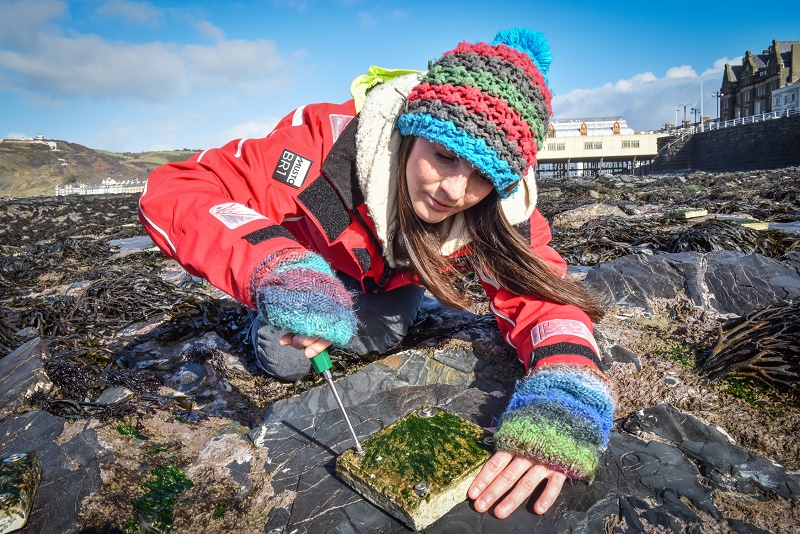€4m to boost biodiversity on coastal structures in Wales and Ireland

Ecostructure will work with stakeholders and policymakers to develop simple, but innovative ecological interventions for enhancing biodiversity, building on IBERS award winning artificial rock pool enhancements at Tywyn and alternative materials to concrete.
24 March 2017
A new EU-backed initiative to enhance the ecological value of coastal defence and renewable energy structures in Wales and Ireland is being led by Aberystwyth University researchers, in collaboration with University College Dublin, Bangor University, University College Cork and Swansea University.
The €4m Ecostructure project was announced today (Friday 24th March 2017) by the Welsh Government’s Cabinet Secretary for Finance and Local Government Mark Drakeford AM.
Dr Joe Ironside from Aberystwyth University’s Institute of Biological, Environmental and Rural Sciences is leading Ecostructure.
Dr Ironside said: “In Wales and Ireland, we rely upon man-made sea defences to protect many of our most important cities, towns and transport links from floods and storms. These artificial structures tend to provide poor habitats for wildlife, but eco-engineering offers enormous potential to make them greener.”
Plans to harness the power of the sea to generate renewable energy will also require large coastal structures, such as the sea walls of proposed tidal lagoons.
Building ecologically sensitive design into these coastal structures will enable them to provide valuable green infrastructure with the potential to benefit people and wildlife, especially in urban areas.
Welsh Government Finance Secretary Mark Drakeford said: “Cross-border projects between Wales and Ireland are important because they bring together expertise from both nations to meet shared challenges and opportunities from our Irish Sea border. Aberystwyth University and its partners will benefit from more €3m of EU funds to deliver this project. It’s another example of the advantages to Wales of continued access to EU co-operation programmes after the UK leaves the EU.”
Backed with €3.25m of ERDF funding from the EU’s Ireland Wales Cooperation programme, the project team will work closely with key stakeholders from the public, private and voluntary sectors on both sides of the Irish Sea to promote the building of ecologically sensitive design into coastal structures.
In addition to providing benefits for coastal ecosystems and the lifestyles of coastal residents and visitors, these new eco-engineering approaches offer potential opportunities to boost the blue and green sectors of the Irish and Welsh economies.
.jpg)



